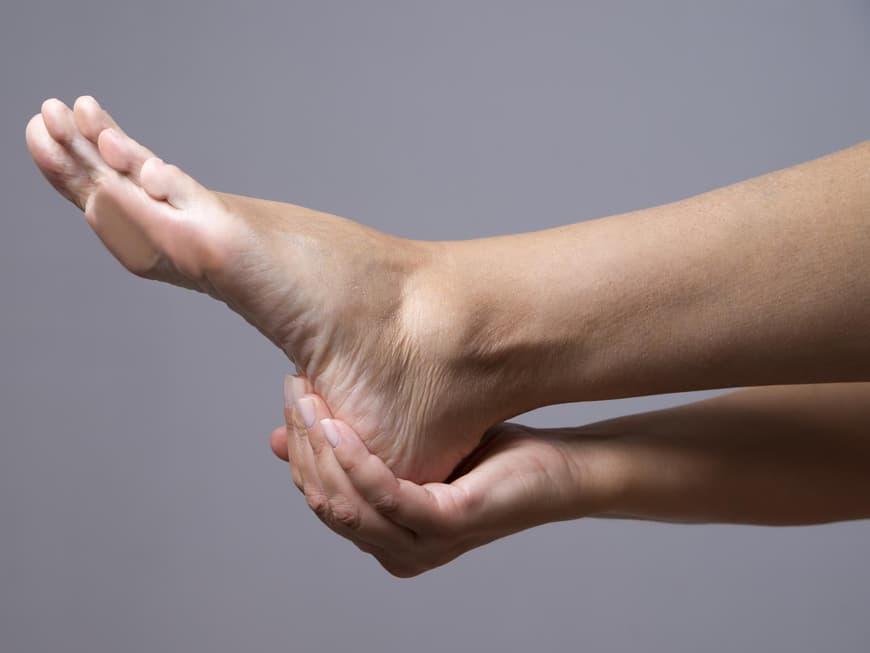
Nerve damage to the feet is very common
Around one in two of the 1850 people examined in the study, both with and without diabetes, showed signs of diabetic neuropathy. This is serious nerve damage to the feet. What is particularly alarming is that even if the pain was already present, those affected often knew nothing about their condition!
Neuropathy was not diagnosed in 57 percent of people with type 2 diabetes. And the number of undiagnosed cases is probably many times higher. Experts led by Prof. Dr. Dan Ziegler from the German Diabetes Center at Heinrich Heine University in Düsseldorf are therefore calling for more effective screening so that the disorders can be detected at an early stage. But it is also up to those affected themselves. After all, many people seem to treat their diabetes far too carelessly. According to the motto "out of sight, out of mind", they do not pay much attention to diabetic foot care. And this can have serious consequences. Initially, diabetes does not cause any pain. The damage to the nerve cells progresses gradually. But when the pain arrives, it is often too late! The brutal consequences of such an ostrich policy: almost 50,000 amputations have to be carried out on feet and legs in Germany every year - because of diabetes!
Removing corns: How to get rid of the annoying pressure points again
More care for diabetic foot care
To prevent this from happening, diabetics should treat their feet with great care. This includes a daily examination of the foot, using a hand mirror if necessary. The best time to do this is in the evening after a foot bath that is not too warm and contains a moisturizing wash lotion. Check the temperature with a bath thermometer! Anything hotter than 35 degrees can lead to scalding, as the temperature sensation is disturbed due to nerve damage. Treat your foot gently!
So instead of rubbing them vigorously, just dab them dry carefully and use a pumice stone instead of metal files for diabetic foot care. Go to a chiropodist if you cannot do this yourself. And make sure you wear the right footwear. They should be made of leather, comfortable and without any irritating inner seams. Check the shoes before slipping them on. Even the slightest unevenness can lead to serious injuries. The right lifestyle is crucial To counteract severe nerve damage, it is recommended to take the fat-soluble vitamin B1 precursor benfotiamine in addition to correctly adjusted blood sugar levels, a balanced diet and plenty of exercise.
The risk of amputation is 50 times higher
The facts are alarming: diabetics have a 50-fold increased risk of having to endure an amputation at some point in their lives compared to non-diabetics. Toes, feet, lower legs, sometimes even thighs - this is often the path of suffering for amputees. The reason for this is the impaired blood circulation in the legs caused by diabetes. This is why diabetic foot care is so important. The first signs are tingling and numbness. If you notice these symptoms, see a vascular specialist immediately!






